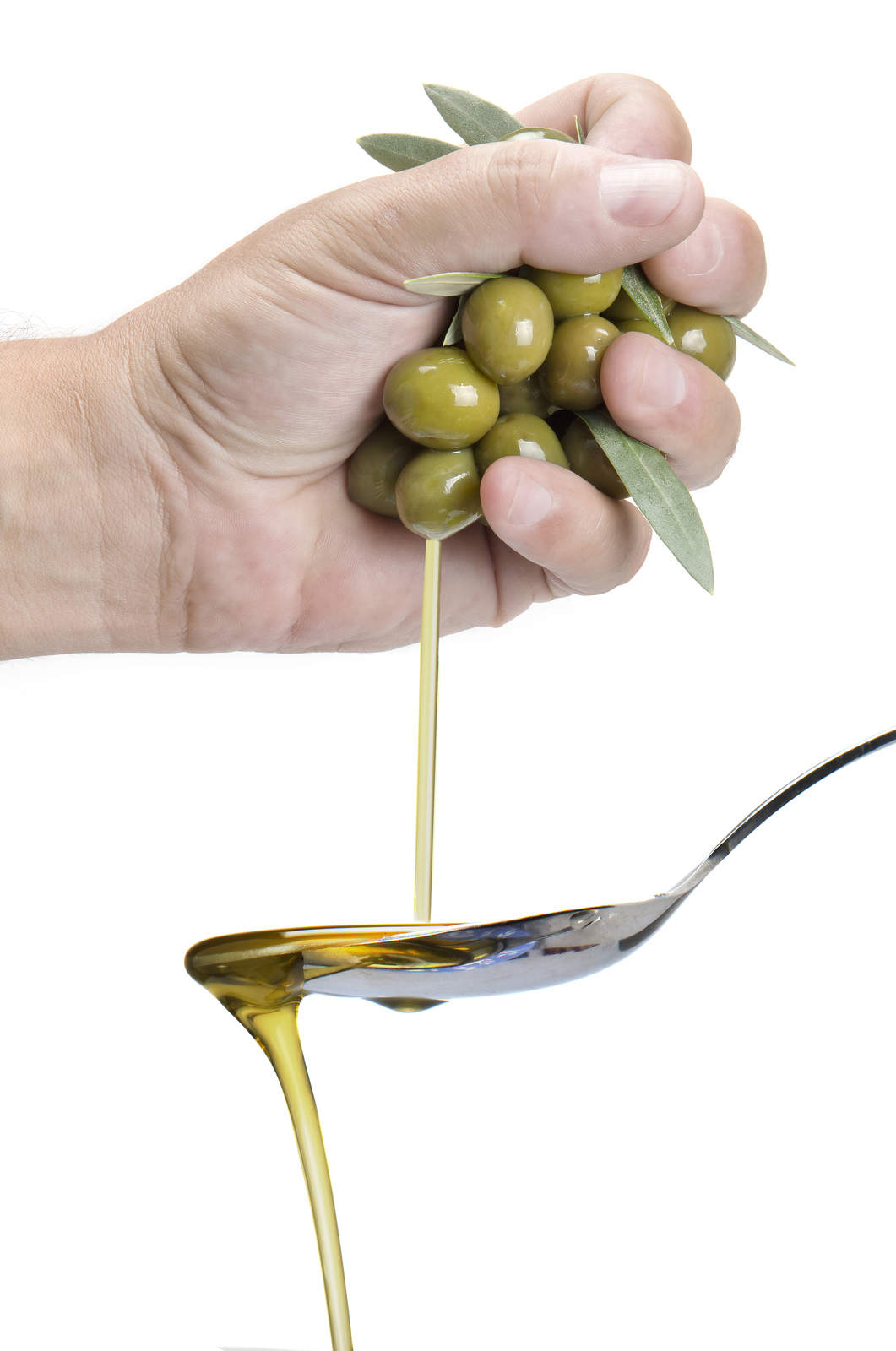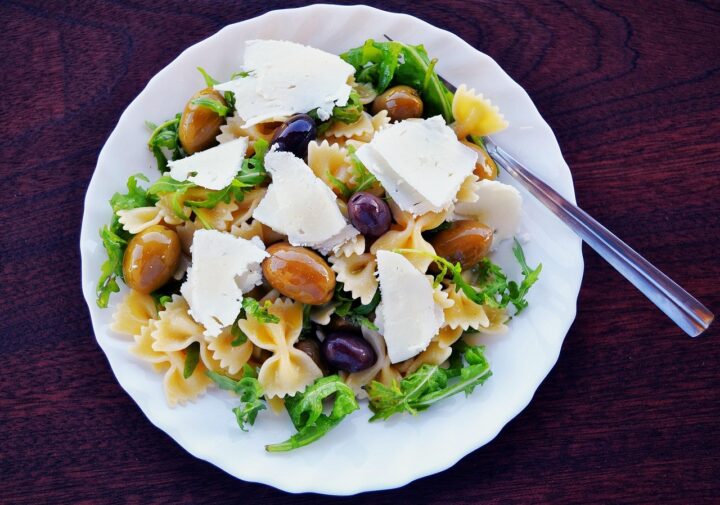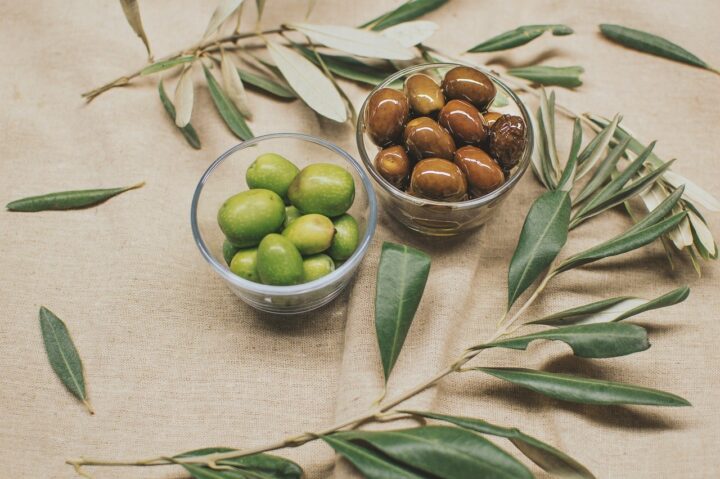Exploring the natural aging process of extra virgin olive oil and the simple steps you can take to preserve your best olive oil shelf life, taste and health benefits.
Updated October 17th 2023
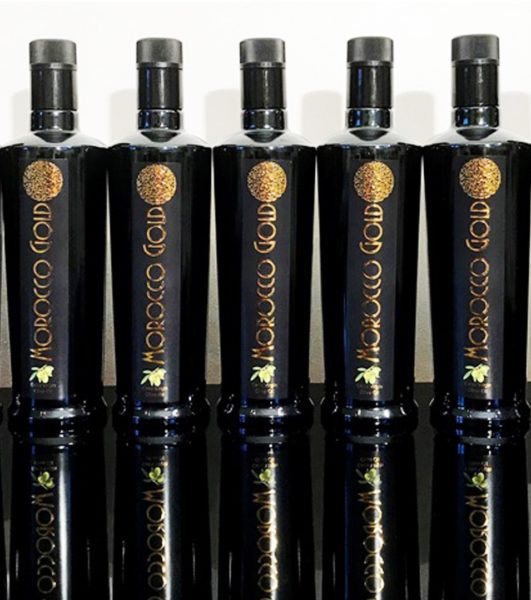
Summary:
- Botanically, the olive (Olea europaea) is considered a fruit. Fruits have a shelf life, and by extension, so does olive oil.
- Storing extra virgin olive oil (EVOO) in a cool, dark place is the best way to maintain its shelf life.
- Exposure to oxygen can cause your extra virgin olive oil (EVOO) to deteriorate faster than it should – so close the cap after use.
- We take great care to ensure the longevity of Morocco Gold extra virgin olive oil, including the selection, early harvesting of our olives, carefully controlled handling and pressing of our olives, and the specialist nature of our glass bottle. This has been designed with a darker tone of green and thicker glass wall to maximise protection from UV rays that can interact with and alter foodstuffs. All these factors mean that our extra virgin olive oil, if stored in cool conditions, will have an extended shelf life.
Contents:
- Introduction
- Keep Extra Virgin Olive Oil (EVOO) Away From Light
- Close The Cap Properly
- Extra Virgin Olive Oil (EVOO) : The Natural Ageing Process
- How We Preserve Morocco Gold Extra Virgin Olive Oil (EVOO)
- Use Your Extra Virgin Olive Oil (EVOO) Before ‘Best Before Date’
- How To Tell Whether Extra Virgin Olive Oil Is Rancid
Introduction
We are often asked, how long will a bottle of Morocco Gold extra virgin olive oil last, will it go off? Botanically, the olive (Olea europaea) is considered a fruit. Fruits have a shelf life, and by extension, so does olive oil. There does come a point at which it will turn rancid and will no longer taste great.
There is no point in finding the best extra virgin olive oil(EVOO) in the UK if you do not look after it properly.
That is why we have put together these tips on how to prevent your olive oil from expiring, so its quality, taste and benefits remain good for as long as possible.
Keep Extra Virgin Olive Oil (EVOO) Away From Light
Many people are tempted to store their bottles of extra virgin olive oil (EVOO) on the windowsill, so they are in easy reach when you need to use them for cooking. However, celebrity chef James Martin told TV viewers this is the worst place to keep extra virgin olive oil (EVOO).
Speaking on This Morning last week, the former Saturday Kitchen host spoke to Phillip Schofield and Holly Willoughby about storing extra virgin olive oil, Metro reported.
“Don’t put extra virgin olive oil (EVOO) on the windowsill, because it will go off, Oil is light sensitive, so [put it in a] dark cupboard or away from that windowsill.”
James Martin, TV Chef
Indeed, storing extra virgin olive oil (EVOO) in a cool, dark place is the best way to maintain its shelf life. However, you do not necessarily need to put EVOO in a refrigerator, unless you do not have a pantry or cupboard that is suitable for it.
An article on Healthline advised those who do keep it in the fridge that it is normal if it looks cloudy, as “this is a normal reaction to cooler temperatures and does not indicate that your extra virgin olive oil has gone off”.
It is also worth buying bottles made out of dark materials, such as Morocco Gold Extra Virgin olive oil as this prevents light entering the container.
Close The Cap Properly
It is not just light that can cause your extra virgin olive oil (EVOO) to deteriorate faster than it should, but exposure to oxygen too.
This can enable fat molecules to break down faster so to prevent oxidation, make sure the cap is closed on the bottle properly.
EVOO : The Natural Ageing Process
Superior extra virgin olive oil extra virgin olive oil (EVOO) like Morocco Gold is obtained only when harvest, milling and processing of olives are properly managed. Along those steps, there are two naturally occurring and interrelated processes that must be understood as they impact extra virgin olive oil extra virgin olive oil (EVOO) quality: lipolysis and oxidation. Lipolysis (a form of hydrolysis) begins on the olive fruit as it ripens, and is caused by enzymes present in the fruit, which are later on removed with the vegetation water. Lipolytic enzymes break down major EVOO components and generate free fatty acids, precursors to extra virgin olive oil (EVOO) change of condition.
Oxidation (more specifically, auto-oxidation) is triggered when the oil enters in contact with oxygen in the air, first during the milling process, and later on during storage in tanks and bottles. Oxidation produces peroxides from some fatty acids. Peroxides are unstable compounds which are further oxidized to yield volatile and non-volatile components that give rise to off-flavours and undesirable aromas in the oil (secondary oxidation). The other form of oxidation, photo oxidation, is usually minor and negligible if the oil is stored in the dark. In brief: lipolysis generates free fatty acids and oxidation causes the formation of peroxides from these fatty acids (primary oxidation), eventually leading to rancidity and degradation of the oil over time (secondary oxidation).
Attaining extra virgin olive oil (EVOO) of superior quality requires minimizing the generation of free fatty acids by hydrolysis and delaying the onset of oxidation. The oxidation process in extra virgin olive oil extra virgin olive oil (EVOO) takes place in three stages: initiation, propagation and termination.
Extra Virgin Olive Oil (EVOO) Oxidation
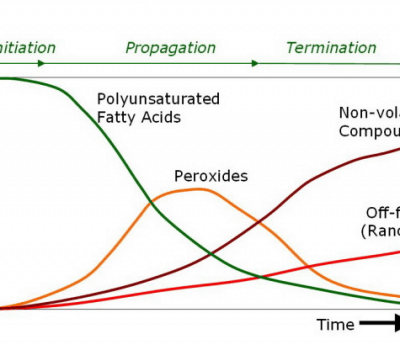
The figure shows how the oxidation of fatty acids in olive oil changes with time. Once the oil has been decanted or centrifuged, the free fatty acid level (or free acidity) will gradually decline while the oil remains in storage. [Declining free acidity is represented in the graph by the down-sloping line from upper-left to lower-right.] During the initiation stage, free fatty acids present in the oil become slowly oxidized, giving rise to small amounts of peroxides. Since peroxides, in turn, decompose into other substances, the overall peroxide level does not increase rapidly. However, when certain levels of peroxides are reached in the oil, a propagation stage ensues during which peroxide levels will rapidly increase, as peroxides beget other peroxides. [Increasing accumulation of peroxides is represented in the graph by the rising left-side of the curve.] During the termination stage, peroxides further decompose giving off numerous off-flavour compounds that humans can detect, even if present at extremely low concentrations—below parts per million. Therefore, even when just a tiny fraction of peroxides degrade into undesirable compounds, the oil will begin to taste rancid. [Rancidity is represented by the lower line rising from the bottom-left to the right of the graph.]
Use Your Extra Virgin Olive Oil (EVOO) Before ‘Best Before Date’
As olive oil is made from fruit, it only lasts a certain amount of time. It is not like a fine wine that improves with age, it will inevitably deteriorate over time.
While it will not cause you harm to consume olive oil that has passed its best-before date, it will lose some of its well-known health benefits and make dishes taste slightly strange.
You will be able to tell if your olive oil has gone off as its flavour will seem stale, sour or bitter, or it will smell slightly odd. If do not feel confident that you will be able to determine if it is rancid or not, it is a good idea to make a note of when you have bought it.
How We Preserve Morocco Gold EVOO
We take great care to ensure the longevity of Morocco Gold extra virgin olive oil, including the selection, early harvesting of our olives, carefully controlled handling and pressing of our olives, and the specialist nature of our glass bottle. This has been designed with a darker tone of green and thicker glass wall to maximise protection from UV rays that can interact with and alter foodstuffs. All these factors mean that our extra virgin olive oil, if stored in cool conditions, will have an extended shelf life.
How To Tell Whether Extra Virgin Olive Oil Is Going Off
There are a few ways to determine whether your extra virgin olive oil has gone bad.
Try a small taste
The best way to tell whether your extra virgin olive oil has gone rancid is by tasting it. Don’t worry, a small taste won’t make you sick. If your olive oil tastes bitter, sour, or stale, it’s no longer good.
Give it a sniff
Bad olive oil may also smell off — like crayons, putty, or Elmer’s glue — instead of bright, fruity olives. This is another sign that it has expired.
Effects of consuming rancid olive oil
Rancid olive oil won’t make you sick. However, it may ruin your recipe by giving the dish a strange flavour. Also, olive oil has many health benefits. Rancid olive oil will lose some of its potent antioxidant properties.
Source: Healthline / Metro
How To Tell Whether Extra Virgin Olive Oil Is Rancid
There are a few ways to determine whether your extra virgin olive oil has gone bad.
Try a small taste
The best way to tell whether your extra virgin olive oil has gone rancid is by tasting it. Don’t worry, a small taste won’t make you sick. If your olive oil tastes bitter, sour, or stale, it’s no longer good.
Give it a sniff
Bad olive oil may also smell off — like crayons, putty, or Elmer’s glue — instead of bright, fruity olives. This is another sign that it has expired.
Effects of consuming rancid olive oil
Rancid olive oil won’t make you sick. However, it may ruin your recipe by giving the dish a strange flavour. Also, olive oil has many health benefits. Rancid olive oil will lose some of its potent antioxidant properties.

